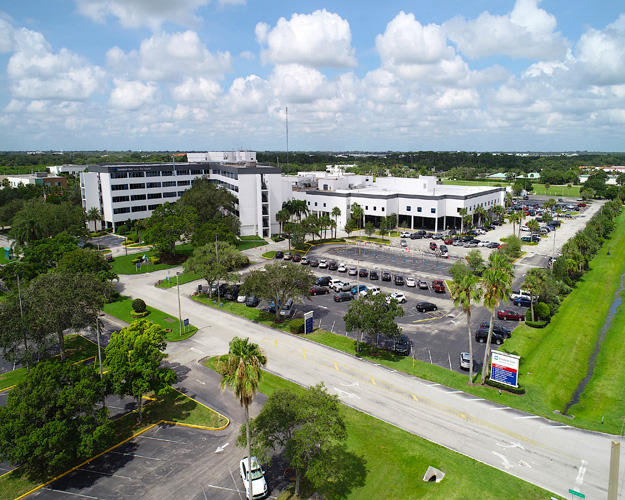As Vero Beach enters its fourth year since the Florida Department of Health announced the state’s first two cases of the novel coronavirus, the rate of infections and hospitalizations for Covid-19 illness remains low.
“We have six patients in-house with covid this morning. No patients of the six are in critical care,” Cleveland Clinic spokesperson Arlene Allen-Mitchell said on Monday.
Covid hospitalizations are up slightly from the four hospitalized the previous week, but six patients hospitalized and zero in the ICU are pretty good numbers considering Vero’s swollen population right now with snowbirds and spring break visitors in town.
Indian River County reported 98 new infections among those who got tested through labs that submit test results to the health department, according to the Centers for Disease Control and Prevention. That’s up slightly from 86 new cases the previous week, but still fewer than 100 people testing positive the week before.
These figures do not include people who showed positive for Covid on an at-home test kit.
Of Indian River County’s population of nearly 166,000 people, 132,230 people have received at least one dose of Moderna or Pfizer vaccine. The number of people who completed a full course of vaccine is 111,464, or 69.7 percent of local residents.
Fewer than one in four of the people who originally got “fully vaccinated” have gone the extra step and gotten the new bivalent booster shot as well.
Presumably most people have gotten vaccinated either because they wanted to protect vulnerable family members, they were under pressure to do so for employment reasons, or they were genuinely concerned about serious health complications of Covid-19 illness, but researchers at Mount Sinai Medical Center have found what could be a long-term benefit of covid vaccination.
The article entitled “Impact of Vaccination on Major Adverse Cardiovascular Events in Patients with Covid-19 Infection,” was published on Feb. 20 in the Journal of the American College of Cardiology, pointing out what seems to be an initial correlation between Covid vaccination, and reduced instance of major cardiac events after the patient has recovered from Covid illness.
SciTech Daily reported on Sunday, “Analyzing the most extensive datasets in the United States, researchers from the Icahn School of Medicine at Mount Sinai have revealed that vaccination against Covid-19 is associated with fewer heart attacks, strokes, and other cardiovascular issues among people who were infected with SARS-CoV-2, the virus that causes Covid-19.”
The analysis, which included a database of more than 1.7 million unvaccinated and 217,000 vaccinated patients, confirmed a similar conclusion that Korean researchers arrived at though a deep-dive into the health data of Korean patients.
Researchers couldn’t, however, establish a causal link between the vaccine and the statistics, because it’s very possible that people who got vaccinated were more likely to see a primary care physician regularly, or to be extra-mindful of their health in other important ways like diet and exercise.
As pharmaceutical companies and public health experts work to overcome Covid vaccine hesitance to head off the next surge or the next super-variant, scientists, spies and government officials are still looking into how the virus that literally shut down the world came to be.
The Wall Street Journal recently uncovered intelligence reports concluding that the virus probably originated at a Wuhan, China, laboratory that the U.S. government partially funded, but federal officials say there’s still disagreement about how, where and why Covid-19 emerged.

